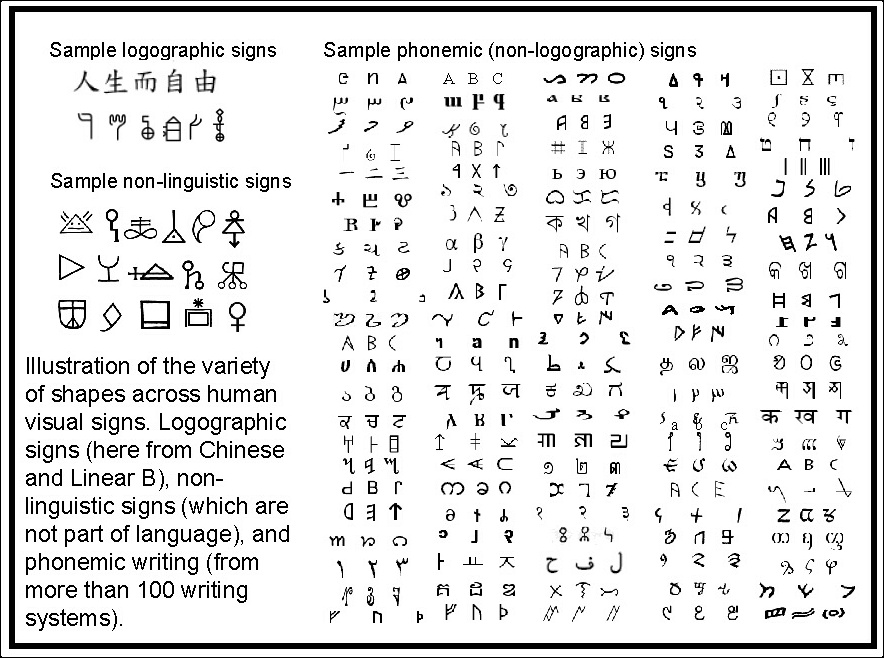Later this evening I’ll be giving a talk to a group of astronomers on what its like to see like an alien. The beauty of this is that I can speculate until the cows come home without fear of any counterexamples being brought to my attention. And even if an alien were to be among the audience members and were to loudly object that he sees differently than I claim, I can always just say that the jury is out until we get more data, and then advise him not to let the door slam into his proboscis on the way out.
Although it may seem wild-eyed to discuss the eyes of aliens, if we understand why our vision is as it is, then we may be able to intelligently guess whether aliens will have vision like ours.
I receive a lot of inquisitive emails from intelligent laymen, and today I received a nice one that asked, in so many words, “Is natural selection fast enough to explain the complex biology we find in our world?”
My knee-jerk response was to say, “Well, of course natural selection is fast enough, because here we are?” But I didn’t do that.
I also didn’t respond by taking out my Dawkins-certified religion-bludgeoning stick. I’m not partial to that pedagogical approach, and I figure it only got Dawkins uncomfortably familiar with Ms. Garrison of South Park.
Instead, I responded in what I think was a more helpful fashion, and my answer was not what the questioner expected. Here is what I wrote:
*****
I need most of my body parts. I figure I have my various meaty chunks for good evolutionary reasons, and far be it from me to sell any, no matter how often that creepy guy shows up at my door with a cooler of dry ice offering me money. But if I ever were going to unload one of my body parts, I’d pick the most useless one of all, one that is even more useless than the appendix (although even it has recently been suggested to not be so useless, see
Your appendix and your eyes).
Dear Hugh Hefner:
Ever wondered why you’re rich? Yes, yes, you’re a savvy businessman who succeeded where thousands have failed. But there are deeper reasons underlying why your business model works at all. When one digs deeply enough one finds that color – yup, the stuff of rainbows and Crayola – is at the core of your success. Without hue, there’d be no Hugh.
You open your dictionary to figure out what your friend meant by 'nasute,' only to find that the definition is "A wittol, or jemadar; bannocked in an emunctory fashion." What good is this dictionary, you wonder, if it only refers me to other words I don't know? And worse still, the definitions of some of these words refer back to ‘nasute,’ the word you didn’t know in the first place! Even if your attempt to learn what 'nasute’ means is not infected by circularity, you face a quick explosion of words to look up: the words in the definition, the words in each of these definitions, and so on. The dictionary appears, then, to be a terribly messy tangled web.
Reading pervades every aspect of our daily lives, so much so that one would be hardpressed to find a room in a modern house without words written somewhere inside. Many of us now read more sentences in a day than we listen to. Not only are we highly competent readers, but our brains even appear to have regions devoted to recognizing words. A Martian just beginning to study us humans might be excused for concluding that we had evolved to read.
But, of course, we haven’t. Reading and writing is a recent human invention, going back only several thousand years, and much more recently for many parts of the world. We are reading using the eyes and brains of our illiterate ancestors. Why are we so good at such an unnatural act?
 Is Your Doctor "Health Blind"?
Is Your Doctor "Health Blind"?  The Ravenous Color-Blind: New Developments For Color-Deficients
The Ravenous Color-Blind: New Developments For Color-Deficients Don’t Hold Your Breath Waiting For Artificial Brains
Don’t Hold Your Breath Waiting For Artificial Brains Welcome To Humans, Version 3.0
Welcome To Humans, Version 3.0








